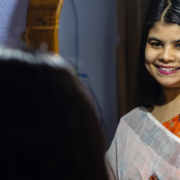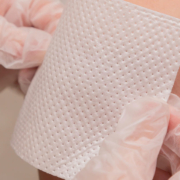Building a Strong Support System
 Cindy Chu shares her suggestions for building your personal support system.
Cindy Chu shares her suggestions for building your personal support system.
Receiving a diagnosis of Inflammatory Breast Cancer in November 2017 definitely threw me into panic. I was filled with fear and dread, thinking that if I could survive, it would be an unbearable ordeal. Today, almost two years later, I can report that I am surviving this disease! The treatment, while not easy, had many silver linings. The most important was having a strong support system.
Breast cancer happens to individuals from every walk of life. We all have different life experiences, resources and coping mechanisms. I would like to share some strategies to build support that can be beneficial to all. I was surprised by the support that came to me and got me through, and perhaps you will be, too.
Get familiar with as many organizations as you can that support patients with IBC. Start with this organization that is full of positive and well informed participants. There are others out there! Through some frantic searching the evening of my diagnosis, I found Carolina IBC Support Group on Facebook, which is a group of strong, smart women in the state where I live. This group meets yearly but connects frequently on Facebook and emails. If your state does not have such a group, start one! It may take a while, but they will come. No one wants to be alone in fighting this disease
Reach out! I reconnected with old friends from the past which included my college roommate and a former neighbor. I had not engaged much with either of them in 20 years but we immediately rekindled our bond. Life, work, and family caused us to drift apart and cancer brought us back together. I would like to think I would have accepted it if they had not come through for me after so many years, but it was so worth the risk I took in reaching out. I am attending my 40th homecoming reunion with my old roommate in a few weeks!
Engage your providers in finding other IBC patients! We live in a huge HIPAA world where health information privacy rules. Still, it is okay for you to ask your provider to help look out for your BEST interests. Give your provider your phone number or email and ask them to have any other patients they know with Inflammatory Breast Cancer to contact you. You may sign a consent if that is preferred. I had a former colleague and IBC survivor who I immediately reached out to. At the time of her diagnosis 12 years ago, she was introduced by her physician to a Stage 4 survivor (18 years out, just saying), who she then introduced to me and so on. It grew into a beautiful friendship that goes way beyond cancer. She introduced me to another long-term survivor who became a great friend and cheerleader.
Be open to new experiences. I learned that there are people in this world who are devoted to making phone calls, sending cards, praying, and just being there. The people who showed up in my world were some I did not know well at all before I had breast cancer. I can promise you I was not always in touch with the needs of others in the way these earthly angels are to me. Allow people to care and shower you with love and light!
Eliminate negativity. This is the flip side to being open. Those who have bitterness see the cup half empty (rather than half full), and like to make your cancer their story, must be balanced out with positive people! It’s okay to be a little selfish and focus on your recovery. You need time to pray, meditate, journal – whatever allows you to filter negativity out of your life and bring in tons of hope!
If someone had told me it would turn out this way, I would have been skeptical. Some remarked that I had such a great attitude, but it was from the support I received and the hope that came with it. If you are struggling, please reach out. If the support of friends, family, and survivors is not adequate, please seek professional help. Every cancer center can link you to a therapist.
May your journey bring silver linings as you build support all around you! As the panic fades, you can embrace healing and appreciating what each day brings.







